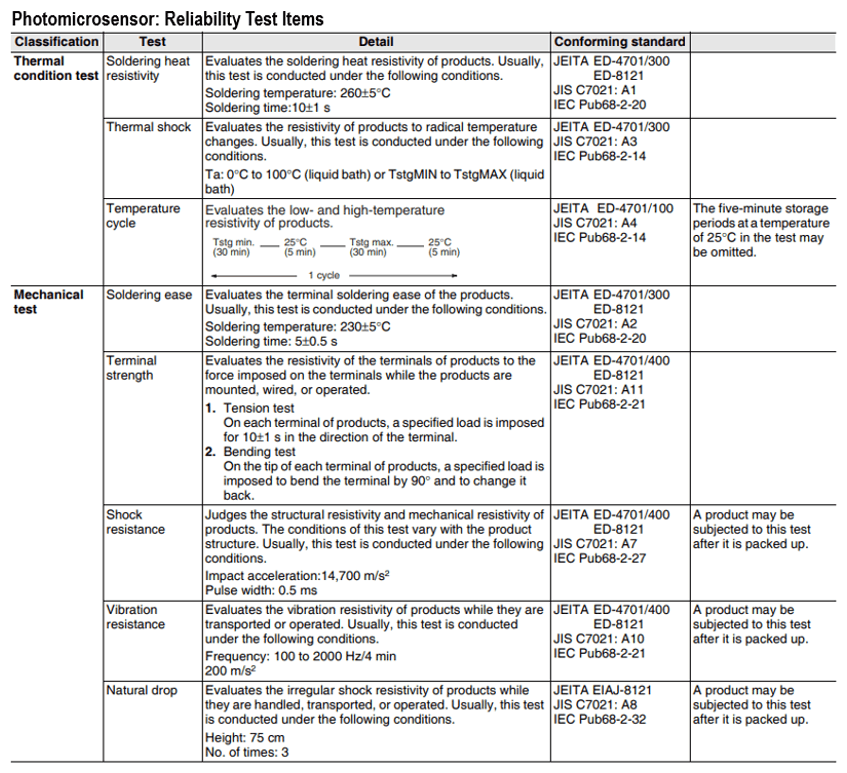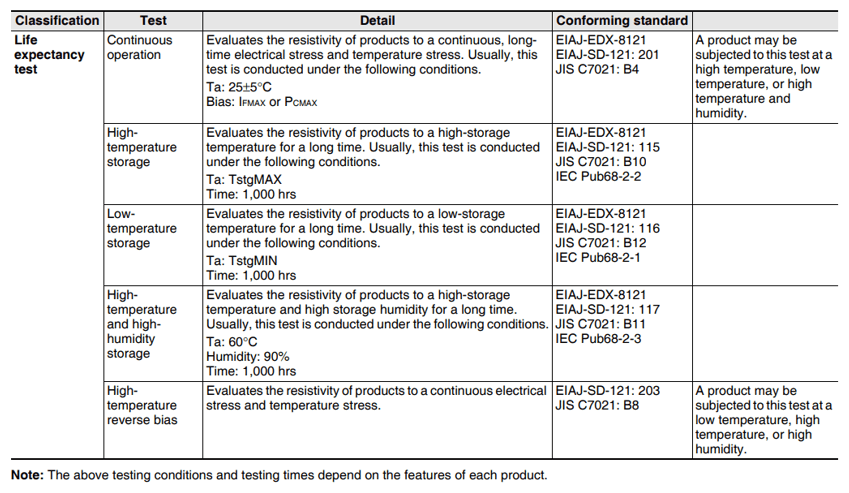Explain the operating and storage temperature precautions for Photomicrosensors.
ID: FAQE40026E
update:
Answer
For precautions of operating and storage temperature for Photomicrosensors, refer to Explanation.
Explanation
- Structural/material constraints
Most Photomicrosensors have the following structure:
- Light emitting/receiving element: Sealed with transparent epoxy resin
- Housing: Polycarbonate
- Heat-resistant temperature
While ICs and transistors can withstand temperatures up to about 150°C, Photomicrosensors can withstand 100°C at most for storage. - Mechanical strength
Relatively low against stress to lead terminals. This is because black epoxy resin is improved in heat resistance and strength by additives such as glass fibers, whereas Photomicrosensors are not able to use additives for light transmission.
As a result, it is necessary to handle them differently from ICs and transistors.
- Operating/storage environment
Keep the upper and lower temperature limits specified in the datasheet for each product, and carefully consider temperature changes. As mentioned above, the heat resistance of Photomicrosensors is lower than those of ICs and transistors. Design and implement your system so that excessive temperature stress is not applied. Also, keep in mind the humidity when using within the operating temperature range. Because the Photomicrosensors use transparent epoxy resin, the humidity resistance of them is lower than that of ICs and transistors. Design and implement your system so that excessive humidity stress is not applied.
Photomicrosensors are designed for use in normal humidity. When using in a high/low humidity environment, make sure to evaluate thoroughly in advance the conditions and how the sensor could be affected.
Do not use in a chlorine environment. The gallium arsenide (GaAs) that make up the LED element can compound with chlorine, which may cause the LED element pad to peel off.
Quick tips
Generally, reliability tests are conducted for Omron’s Photomicrosensors in accordance with the EIAJ standard. Shown below are the test details.


| Product category | Sensors Photomicro Sensors |
|---|---|
| Classification | Mounting, Storage |
| Related keywords |
|